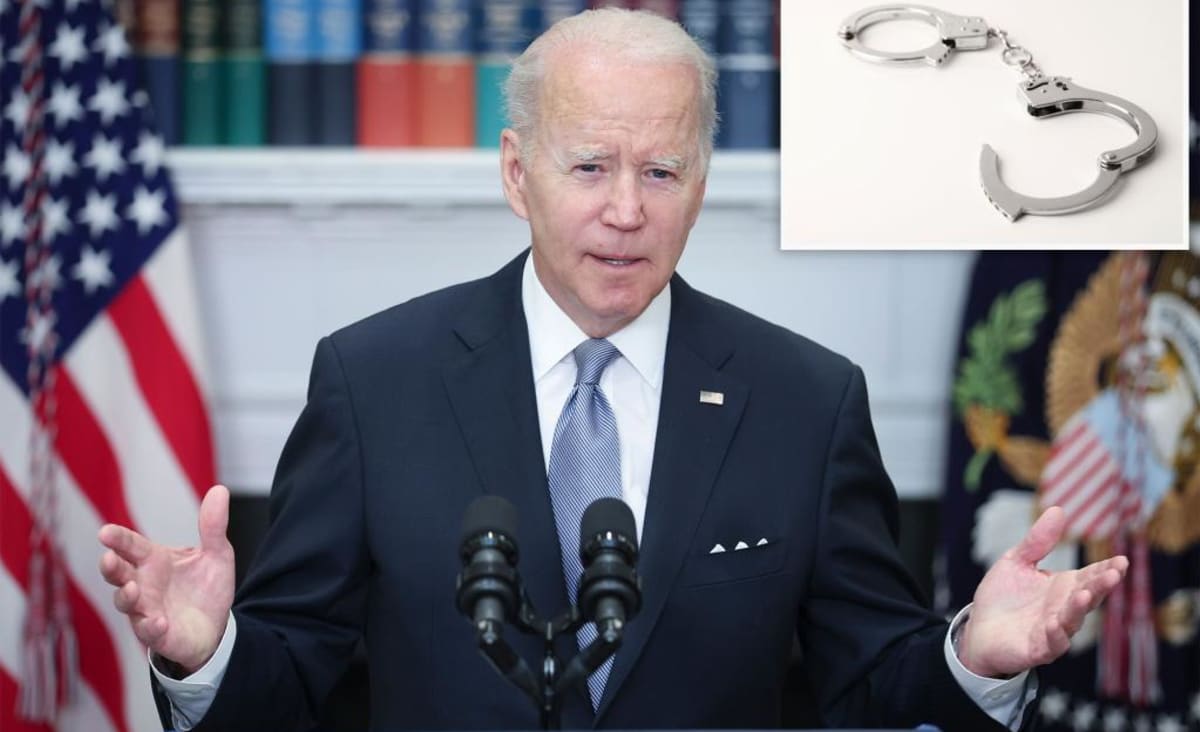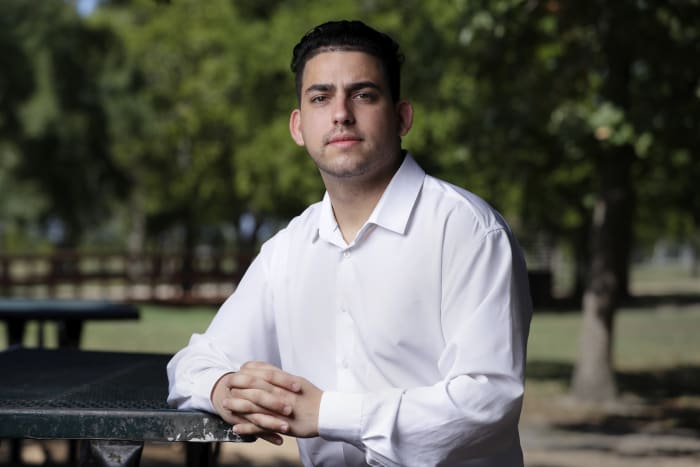This post may refer to COVID-19
To access official information about the coronavirus, access CDC - Centers for Disease Control and Prevention.

nypost.com
Biden issues first pardons and prison commutations of presidency
President Biden on Tuesday issued three pardons and 75 prison sentence commutations in his first grants of clemency since taking office.
Politics
WASHINGTON — President Biden on Tuesday issued three pardons and 75 prison sentence commutations in his first grants of clemency since taking office.
All of the commutations and two of the three pardons went to people convicted of federal drug offenses.
“Today, I am pardoning three people who have demonstrated their commitment to rehabilitation and are striving every day to give back and contribute to their communities,” Biden said in a statement.
“I am also commuting the sentences of 75 people who are serving long sentences for non-violent drug offenses, many of whom have been serving on home confinement during the COVID-pandemic — and many of whom would have received a lower sentence if they were charged with the same offense today, thanks to the bipartisan First Step Act.”
Biden pardoned former Secret Service agent Abraham Bolden, 87, who was sentenced to six years in prison in 1964 for bribery. He was the first black man assigned to a presidential protective detail.
Biden also pardoned Houston resident Betty Jo Bogans, 51, who received a seven-year prison sentence in 1998 for possession with intent to distribute crack cocaine, and Georgia resident Dexter Jackson, 52, who pleaded guilty in 2002 to allowing pot dealers to use his property. Jackson runs a phone repair firm.
Fifty-eight of the 75 sentence commutations are set to take effect in 2023, with most of those recipients technically under house arrest until then.
A White House official told The Post that the decision to delay the effective date for many cases was consistent with the practice of some prior administrations. He added that “these grants, which shorten the sentences of non-violent drug offenders, will make a meaningful impact on the individuals’ lives.”
“President Biden has issued more sentence commutations at this early point in his presidency than any of his last five predecessors at the same point in their first terms,” the official said. “President Biden has moved quickly in order to express his deep commitment to reform our justice system, address racial disparities, and provide second chances to individuals who are working hard to turn their lives around. At the same time, this is just the first tranche. The President and his team will continue reviewing petitions from non-violent drug offenders for additional grants of clemency.”
Biden is responsible for some of the nation’s harshest drug laws, but he pivoted ahead of the 2020 campaign to support criminal justice reform. He even said he wanted to free “everyone” in prison for marijuana.
Just five people jailed exclusively for marijuana are getting a sentence commutation and some of them will spend more time behind bars.
Jose Colunga of Nebraska, who got a 20-year sentence in 2010 for dealing marijuana, will now be released in October 2023, according to a White House fact sheet — rather than his estimated 2027 release date. Texas resident Fermin Serna, who got a 20-year sentence, will have his prison term expire in August 2022, rather than in 2030.
Stacie Demers of Constable, New York, and Carry Le of Georgia — who got 10-year sentences in 2016 for pot dealing — will be on house arrest for a year, as will Quang Nguyen of Houston, who got a 10-year pot sentence in 2017.
There are roughly 2,700 federal marijuana inmates and many high-profile cases didn’t make the cut.
It was not immediately clear what role outside lobbying played in the clemency grants.
An administration official told reporters on a Monday evening call that “the Department of Justice makes recommendations to the president and the president considers those recommendations,” which would be a break from the Trump era, when clemency advocacy groups and influential people routinely won over the president.
The official said Biden “understands that too many people are serving very long sentences for nonviolent drug crimes and so he’s using his clemency power as a way to try and address that.”
Biden advocated for and authored extremely tough penalties for drug crimes in the 1980s and ’90s. He lobbied for a since-repealed 100:1 sentencing disparity between crack cocaine, which was more commonly used by blacks, and powder cocaine. And Biden’s 1994 law included $12.5 billion in grants to encourage states to adopt “truth in sentencing” laws that required inmates to serve most of their sentence.
Many drug dealers also got federal life sentences under the three-strikes policy expanded by Biden’s 1994 crime law. Former President Donald Trump on his final day in office released two prisoners serving life without parole for marijuana under that rule.
Whether Biden’s 1994 law contributed to the “mass incarceration” of minorities — including sending the black prison population skyward — was a matter of heated debate during the 2020 election.
New York University’s Brennan Center for Justice found the law “helped fuel a prison construction boom” and that “while some states had already started to enact tougher sentencing laws, the legislation rewarded states for those decisions, providing powerful incentives for others to adopt them.”
The total number of prisoners in the US increased from fewer than 1.6 million in 1995 to more than 2 million in 2002.
In a fiery Senate speech, Biden said in 1994, “Every time Richard Nixon, when he was running in 1972, would say, ‘Law and order,’ the Democratic match or response was, ‘Law and order with justice’ — whatever that meant. And I would say, ‘Lock the S.O.B.s up.’”
Even some Biden supporters slammed his record during the presidential campaign.
Left-wing activist and philosopher Cornel West, who begrudgingly supported Biden in 2020, said in an interview, “When [Biden] says [the 1994 law] didn’t contribute to mass incarceration, I tell him he has to get off his symbolic crack pipe.”
Radio host Charlamange Tha God recounted during a TV interview, “When [Biden] was on the Breakfast Club, another part of that interview that people miss is that I asked him about the ’94 crime bill, and the ’94 crime bill being the catalyst for mass incarceration in this country. And he said it wasn’t the crime bill, it was the ’86 mandatory minimum sentencing. But I’m like, ‘Joe, you wrote that too.’ “
The 1986 Biden law led to a life sentence for Alice Johnson, the prominent former prisoner and advocate released from prison by Trump at the urging of Kim Kardashian.
Trump sought to make inroads among black voters during the 2020 election by campaigning on his First Step Act, which curbed some Biden policies, including lowering the penalty for a third strike to 25 years in prison.
























































